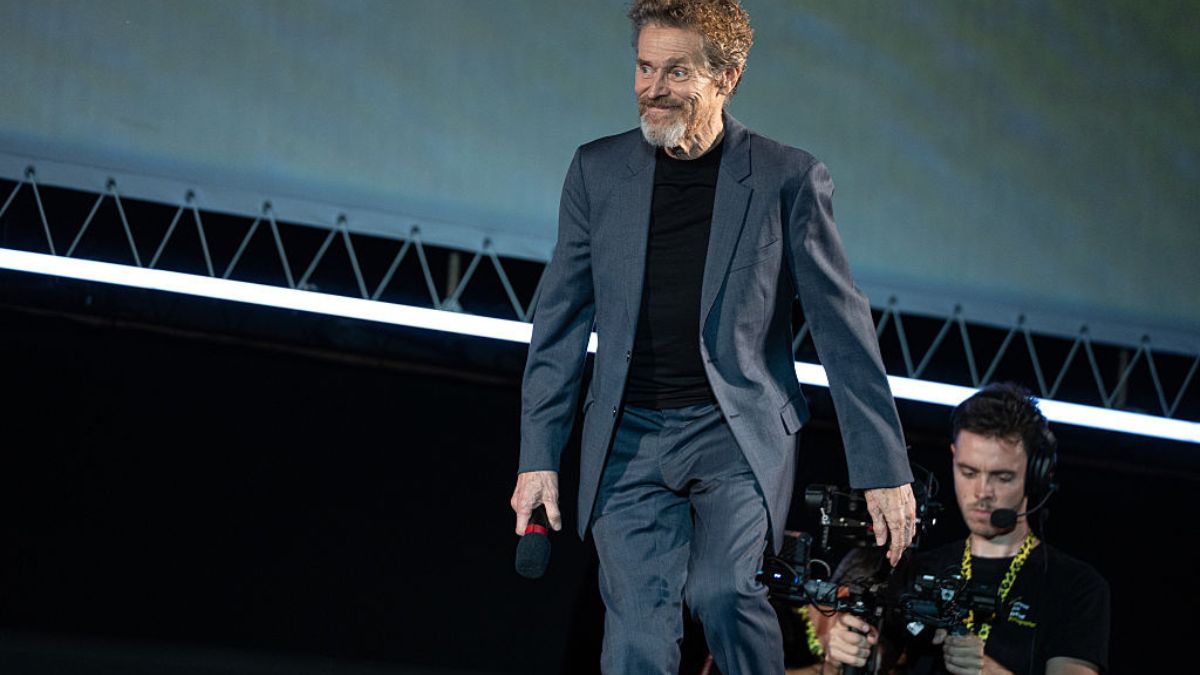
Willem Dafoe recently opened up about the intense controversy that surrounded his 1988 film The Last Temptation of Christ during a career masterclass at the Sarajevo Film Festival. The veteran actor, who was at the festival to receive the Honorary Heart of Sarajevo award, reflected on one of cinema’s most controversial religious films and the shocking backlash it received from religious groups.
The film, directed by Martin Scorsese, depicted Jesus as a man struggling with human desires and temptations, including fear, doubt, and lust. This portrayal was vastly different from traditional biblical films and sparked massive protests before it was even released. Conservative Christian groups organized boycotts, theater chains refused to show the movie, and some religious leaders even called for all copies to be destroyed.
According to Variety, Dafoe said the controversy was “driven by the religious right who needed something to energize their cause” and noted that critics “complained about the idea of the movie” without actually watching it first. He explained that the backlash was particularly shocking because “in an age of super-violent movies and porn, this is a movie that was trying to address the nature of faith. It was a sincere attempt.”
How the backlash turned antisemitic and targeted Hollywood
The actor revealed that the controversy took a disturbing turn when it evolved beyond religious criticism. Dafoe explained that the protests “morphed into a strange thing about Jews in Hollywood and became an antisemitic thing.” He emphasized that many people wrongly blamed the Catholic Church for the opposition, when in reality, “it was the fundamental right in America that started it.”
The backlash was so severe that it had real consequences for those involved. Dafoe himself was actually dropped from another film project because of his association with The Last Temptation of Christ. Director Martin Scorsese faced death threats and had to use bodyguards during public appearances for years after the film’s release. A terrorist attack even occurred in Paris when an extremist Catholic group set fire to a theater showing the movie.
What antisemitic reaction?
— Sebastienne Gomes (@SebastienneGo) August 21, 2025
Despite the controversy, Dafoe described playing Jesus as “one of my favorite roles because it was so demanding.” He praised the film for exploring “the human part of Jesus” as someone “who rejects the responsibility given to him.” The actor noted that they filmed with very little money and resources, which actually helped them focus on the core story without getting “distracted by the spectacle.” His dedication to challenging roles has remained consistent throughout his career, from dramatic films to blockbuster superhero movies.
The film opened in just 123 theaters and grossed only about $33.8 million worldwide due to the widespread boycotts. Many video rental stores, including Blockbuster, refused to carry it. Several countries including Greece, Mexico, and Chile banned the movie entirely. However, critics generally praised the film, with it earning an 82% rating on Rotten Tomatoes and Dafoe’s performance being widely acclaimed even by those who disagreed with the film’s approach.
Looking back nearly four decades later, Dafoe’s comments at Sarajevo show how the controversy has stayed with him. His observation that critics attacked the movie without seeing it highlights a pattern that continues in modern film discourse. The actor’s reflection on how religious criticism turned into antisemitic attacks against Hollywood also reveals the complex dynamics that surrounded one of the most debated films in cinema history.







